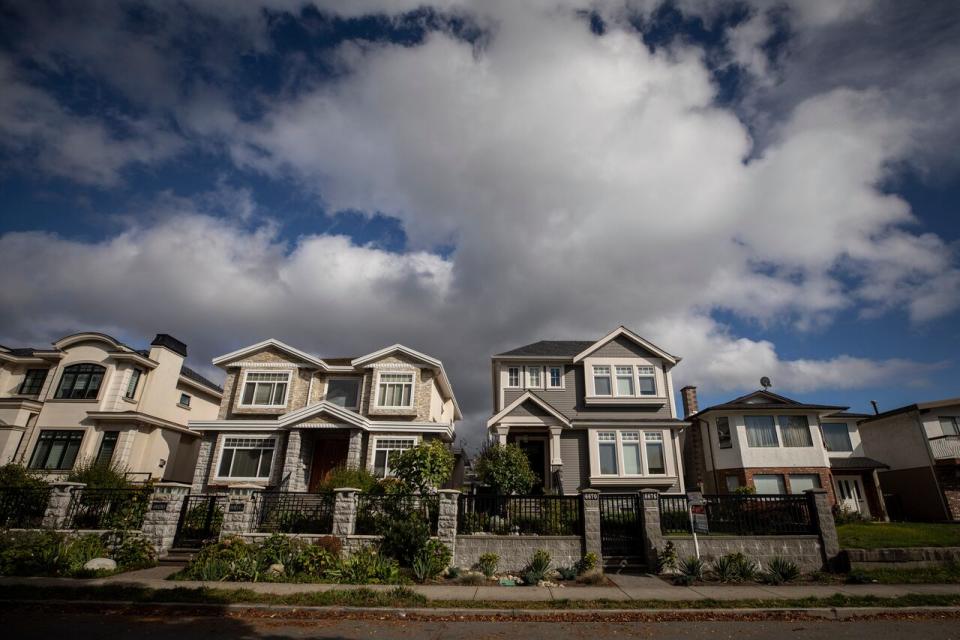Lack of planners a concern as B.C. municipalities try to meet housing targets

The B.C. government instituted construction targets for 10 municipalities in September 2023 to build more than 60,000 new units of housing over the next five years. Targets for a second list of communities are set to be announced in the coming weeks.
But four months into the process, concerns are mounting over the scarcity of planners, a critical component in fulfilling the ambitious housing targets, says Emilie Adin, president of the Planning Institute of B.C.
"Nothing's getting built without planners," she told CBC News.
Planners are critical to the development approvals process, reviewing the specifics of applications for housing and the design of buildings. But there is a deficit of planners across B.C., says Adin, which does not bode well for the province's housing targets.
She says while there has been increasing demand for urban and land use planners all across the province, filling those vacant planning positions has been difficult.
"Our job posting activity increased by 93 per cent from 2020 to 2021," she said.
Experts indicate the shortage is a result of fewer individuals enrolling in planning courses and a growing number of experienced planners retiring from their positions.
"We're seeing people leave the profession but then we're not seeing enough people enter the profession," said Andreanne Doyon, director of the planning program at Simon Fraser University.

Provincial legislation requires local governments to change their bylaws to allow three or four housing units on land currently zoned for single-family use, and six units near transit hubs. (Ben Nelms/CBC)
One of the main reasons for this dearth of planners, Doyon says, is burnout.
"It is a challenging job. We see a lot of these professionals work maybe for 10 years and they go and do something else."
The SFU professor says the high cost of living in B.C. has also prompted many planners to seek jobs elsewhere in Canada.
"The province is really struggling to keep them from going."
Interest in pursuing higher education in planning has also dwindled among young professionals, she adds.
"We have seen a decrease in enrolment in master's programs in planning," Doyon said. "Part of the reason is because planning has become very political, getting caught between what the province and the municipality want and dealing with push backs from residents."
Diana Dilworth, councillor for Port Moody, one of 10 municipalities listed to meet the province's ambitious housing plan, admits to the impact of the planner shortage on meeting the set targets.
"Unfortunately in city halls there is quite frankly a staffing shortage," she said in an interview with CBC News.
While the City of Port Moody is confident it will meet its mandated target of adding 1,694 finished housing units within the next five years, Dilworth says other smaller communities are struggling to keep up with the province's housing goal.
The pressure of updating the official community plan (OCP) has also put a lot of pressure on city planners, she adds.
In November 2023, B.C. also introduced legislation aimed at increasing small-scale multi-unit housing by forcing municipalities to change zoning rules to make it easier to build town homes, multiplexes and laneway houses.
A deadline of June 30, 2024, has been set for local governments to bring current bylaws into compliance with the province.
To support implementation, the province has provided municipalities like Port Moody with resources, including $10 million to help speed up the processes.
"But we don't really have the capacity to fully take advantage of the tools and incentives that the province is providing us," said Dilworth.
"While Port Moody is wrapping up its OCP process, other smaller municipalities are facing a lot of challenges to meet the deadline."
